
Hosts: Beth Bennett & Chip Grandis
Producer: Beth Bennett
Engineer: Chip Grandis
Executive Producer: Susan Moran
Listen to the show:
Podcast: Play in new window | Download (Duration: 27:10 — 24.9MB)
Subscribe: RSS
The KGNU Science Show

Hosts: Beth Bennett & Chip Grandis
Producer: Beth Bennett
Engineer: Chip Grandis
Executive Producer: Susan Moran
Listen to the show:
Podcast: Play in new window | Download (Duration: 27:10 — 24.9MB)
Subscribe: RSS
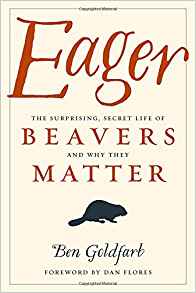 Beth talks with author Ben Goldfarb about his new book, amusingly titled Eager: The Surprising, Secret Life of Beavers and Why They Matter. You’ll gain a better understanding of beavers’ myriad skills, and want to restore beaver populations in our local environments. Spoiler alert, we’ll have copies of his book available during the pledge drive show on Oct. 16.
Beth talks with author Ben Goldfarb about his new book, amusingly titled Eager: The Surprising, Secret Life of Beavers and Why They Matter. You’ll gain a better understanding of beavers’ myriad skills, and want to restore beaver populations in our local environments. Spoiler alert, we’ll have copies of his book available during the pledge drive show on Oct. 16.
Host: Maeve Conran
Producer: Beth Bennett
Engineer: Maeve Conran
Executive Producer: Susan Moran
Listen to the show:
Podcast: Play in new window | Download (Duration: 26:23 — 30.2MB)
Subscribe: RSS
 The National Wildlife Federation just released its report, Safeguarding Summer: From Climate Threats to Iconic Summer Experiences. This report chronicles the latest scientific findings on these trends and shows how we can engage on these issues to save our summers now and for future generations. This week Beth interviews the lead author, Frank Szillosi, about the findings and predictions. You can find the entire report at the NWF website, https://www.nwf.org/Home/Latest-News/Press-Releases/2018/08-15-18-Safeguarding-Summer.
The National Wildlife Federation just released its report, Safeguarding Summer: From Climate Threats to Iconic Summer Experiences. This report chronicles the latest scientific findings on these trends and shows how we can engage on these issues to save our summers now and for future generations. This week Beth interviews the lead author, Frank Szillosi, about the findings and predictions. You can find the entire report at the NWF website, https://www.nwf.org/Home/Latest-News/Press-Releases/2018/08-15-18-Safeguarding-Summer.
Hosts: Beth Bennett and Maeve Conran
Producer: Beth Bennett
Engineer: Maeve Conran
Additional Contributions: Susan Moran & Joel Parker
Executive Producer: Beth Bennett
Listen to the show:
Podcast: Play in new window | Download (Duration: 26:33 — 24.3MB)
Subscribe: RSS
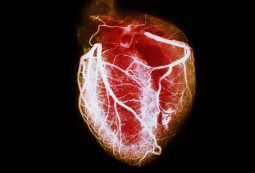
Host: Beth Bennett
Producer: Beth Bennett
Engineer: Beth Bennett
Executive Producer: Beth Bennett
Listen to the show:
Podcast: Play in new window | Download (Duration: 26:35 — 24.3MB)
Subscribe: RSS
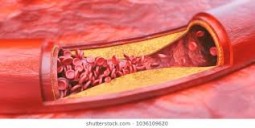 This week’s How on Earth guest, Dr Doug Seals, researches vascular aging. Several events occur as we age that conspire to damage blood vessels, culminating in what is popularly known as hardening of the arteries. But lifestyle modifications to exercise and diet can prevent and even reverse this trend. This week’s show gives background and mechanisms of this aging; next week’s episode will delve more deeply into solutions and interventions. To find out more about the Seals’ lab research visit their website: https://healthyagingproject.org/
This week’s How on Earth guest, Dr Doug Seals, researches vascular aging. Several events occur as we age that conspire to damage blood vessels, culminating in what is popularly known as hardening of the arteries. But lifestyle modifications to exercise and diet can prevent and even reverse this trend. This week’s show gives background and mechanisms of this aging; next week’s episode will delve more deeply into solutions and interventions. To find out more about the Seals’ lab research visit their website: https://healthyagingproject.org/
Host:
Producer:Beth Bennett
Engineer: Beth Bennett
Executive Producer: Beth Bennett
Listen to the show:
Podcast: Play in new window | Download (Duration: 27:10 — 24.9MB)
Subscribe: RSS
 This week on How on Earth, Beth talks to author Dr Marc Bekoff, Professor Emeritus, CU Boulder. His new book has the wonderful title of Canine Confidential. If you enjoy dogs, dog parks, and watching them interact with each other and people, you’ll enjoy this book!
This week on How on Earth, Beth talks to author Dr Marc Bekoff, Professor Emeritus, CU Boulder. His new book has the wonderful title of Canine Confidential. If you enjoy dogs, dog parks, and watching them interact with each other and people, you’ll enjoy this book!
Hosts: Beth Bennett and Gretchen Geibel
Producer: Beth Bennett
Engineer: Maeve Conran
Additional contributions: Joel Parker
Executive Producer: Beth Bennett
Listen to the show:
Podcast: Play in new window | Download (Duration: 27:05 — 24.8MB)
Subscribe: RSS
This week on How on Earth, Beth interviews Dr Lee Know, author of Mitochondria and theFuture of Medicine. These amazing organelles, which allow complex life on Earth to exist, do more than “just” make ATP. Ask that isn’t enough! They are intimately involved in many aspects of health and disease. The good news is that we can optimize their function to attain longer, healthier lives.You can see the book at https://www.chelseagreen.com/product/mitochondria-and-the-future-of-medicine/
Host: Beth Bennett
Producer: Beth Bennett
Engineer: Maeve Conran
Executive Producer: Joel Parker
Listen to the show:
Podcast: Play in new window | Download (Duration: 25:02 — 22.9MB)
Subscribe: RSS
 Two epidemics sweeping the developed world are Type 2 diabetes and Alzheimer’s disease.This week on How on Earth, Beth interviews Dr Steven Masley about his book, The Better Brain Solution in which he explores the connection between diet (and other lifestyle factors) and these diseases. Based on the results of numerous clinical trials he has conducted in his medical practice, Masley presents a program to prevent and possibly reverse this metabolic syndrome. You can find his book and other information at https://drmasley.com/better-brain-solution/
Two epidemics sweeping the developed world are Type 2 diabetes and Alzheimer’s disease.This week on How on Earth, Beth interviews Dr Steven Masley about his book, The Better Brain Solution in which he explores the connection between diet (and other lifestyle factors) and these diseases. Based on the results of numerous clinical trials he has conducted in his medical practice, Masley presents a program to prevent and possibly reverse this metabolic syndrome. You can find his book and other information at https://drmasley.com/better-brain-solution/
Host: Beth Bennett
Producer: Beth Bennett
Engineer: Maeve Conran
Executive Producer: Joel Parker
Listen to the show:
Podcast: Play in new window | Download (Duration: 26:06 — 29.9MB)
Subscribe: RSS
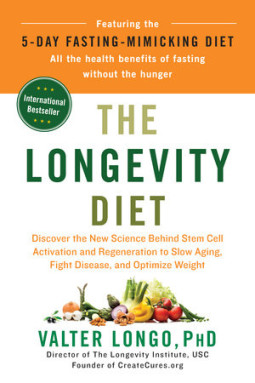
This week on How on Earth, Beth interviews Dr Valter Longo, director of the USC Longevity Institute. Dr Longo has researched the fundamental mechanisms of aging in yeast, mice and humans using genetics and biochemistry techniques. He is also interested in identifying the molecular pathways conserved from simple organisms to humans that can be modulated to protect against multiple stresses and treat or prevent cancer, Alzheimer’s Disease and other diseases of aging. In his new book, The Longevity Diet, he describes his research and how to apply it in your life, for health and longevity.
Hosts: Beth Bennett, Joel Parker
Producer: Beth Bennett
Engineer: Joel Parker
Executive Producer: Susan Moran
Listen to the show:
Podcast: Play in new window | Download (Duration: 27:13 — 31.1MB)
Subscribe: RSS
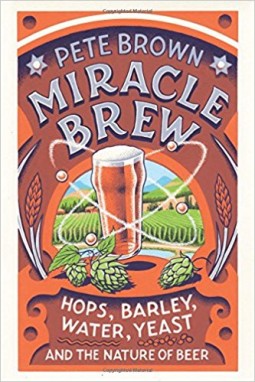
This week on How on Earth, Beth interviews Pete Brown, author of Miracle Brew, the story of how beer is made of 4 seemingly simple components, but really from an amazing complexity of science and art. The New York Times recently reviewed Miracle Brew. Here’s what they said: A magisterial tour of fearsome science and vast brewery history leavened with cheery anecdotes, humor, vivid you-are-there prose and a clever eye for personality . . . His rhapsodies about the meaning of life and the meaning of beer are stirring. . . .His expertise and insight will leave you with a glimmer of infinity every time you hold a bottle of it in your hand.
Hosts: Beth Bennett, Susan Moran
Producer: Beth Bennett
Engineer: Maeve Conran
Additional Contributions: Susan Moran
Executive Producer: Susan Moran
Listen to the show:
Podcast: Play in new window | Download (Duration: 27:52 — 25.5MB)
Subscribe: RSS